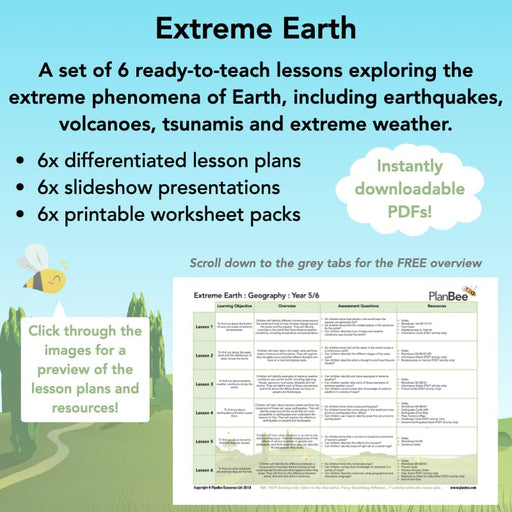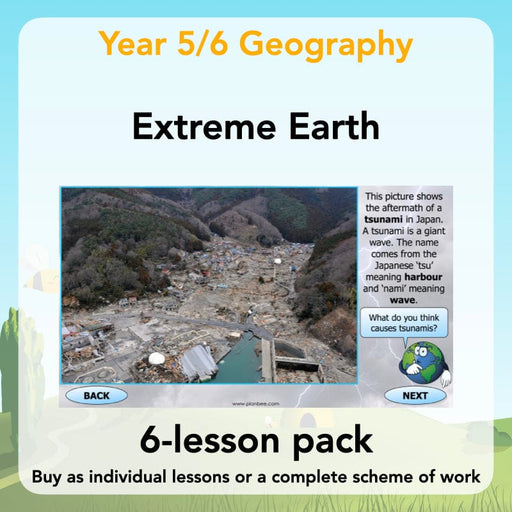
The Importance of Art in the Curriculum
Children’s Art Week runs from 29th June to 19th July this year. But is art still important in primary schools?
In an increasingly busy school timetable, art can often be overlooked in favour of the core subjects. In addition to this, the pandemic has increased the pressure for children to catch up on missed learning in core subjects, which makes art lessons even harder to fit into the packed timetable.
However, according to tate.org.uk, ‘Schools that integrate arts into their curriculum show improved student performance in maths, English, critical thinking and verbal skills’.
Here at PlanBee we believe that art is an extremely important subject to teach, with many, sometimes hidden, values that we are going to further explore.

Art helps to develop imagination, self-expression and creativity
Have you ever watched a child who is completely absorbed in drawing or painting? Their full concentration is on creating something from nothing, using only their imagination and creativity to express a thought, feeling or idea. This is a skill that we should want to nurture in all children.
Art fosters experimentation more than many other subjects do. It gives children the freedom and choice to create something that is unique to them. Not only is this a healthy outlet for self-expression, but in the world of work, skills like creativity and innovation are highly valued by many employers.
‘Art has the role in education of helping children become like themselves instead of more like everyone else.’
Sydney Gurewitz Clemens, Consultant in Early Childhood Education
Art helps to develop self-confidence, self-discipline and resilience
As art is less prescribed than many other subjects, children are often free to choose the direction that they take, and so naturally end up internally asking themselves questions and solving problems as the work progresses. This can lead to a real sense of ownership of what they produce. The artwork does not have to be a masterpiece; the outcome does not matter as much as the skills learnt during the task.
Many children feel more comfortable in art lessons because this is a subject where there is no ‘right answer’. They are free to explore their ideas without the threat of being wrong, and so become more at ease with the uncertainty of not knowing how something might turn out. As a result, children are more likely to experiment and try out new ideas. They are less likely to give up when they encounter a problem or things don’t end up as they had planned.
Art helps to develop critical thinking
Art helps children to communicate visually about both how they see and experience the world, and how they feel about it. For some children, this may be too difficult a process to do verbally, but through art they can achieve this.
Discussing the artwork of fellow classmates or those of famous artists helps children to look at the world around them through different eyes. It teaches them that not everyone’s idea or view of something is the same, nor does it have to be.

Art aids relaxation and well-being
For many children, art is an outlet for releasing the stress and pressures of everyday life. It is a calming activity that they are in control of.
Creativity has been linked with well-being, and the more children are allowed to explore their individual identity and develop their sense of self, the more content they will be within themselves.
Art holds a very important place within the primary curriculum; it helps to balance the weight of academic vs creative subjects, and supports the development of the whole child. In an era where standardised testing is encouraged in order to measure and assess childrens' progress and development in a knowledge-based curriculum, the danger is that less importance will be placed on the many and diverse life skills that art can teach them.
‘Art in schools shouldn’t be sidelined… it should be right up in the front… art teaches you to deal with the world around you. It is the oxygen that makes all the other subjects breathe.’
Alan Parker, Film Director
Featured collection
-
We're Going on a Lion Hunt
Original price £12.00 - Original price £12.00Original price£12.00 - £12.00£12.00 - £12.00Current price £12.00Take your class on an unforgettable adventure through the African savannah with this exciting six-lesson English scheme, inspired by 'We’re Going o...
View full details -
Titanic Recounts and Reports
Original price £12.00 - Original price £12.00Original price£12.00 - £12.00£12.00 - £12.00Current price £12.00This Titanic Recounts and Reports planning pack for KS2 children challenges your Year 5 or Year 6 children to use what they know about the Titanic ...
View full details -
Rainforest Habitats
Original price £10.00 - Original price £10.00Original price£10.00 - £10.00£10.00 - £10.00Current price £10.00Take your class on an unforgettable journey through the world's rainforests with this fully planned and resourced five-lesson 'Rainforest Habitats'...
View full details -
Mountains KS2
Original price £10.00 - Original price £10.00Original price£10.00 - £10.00£10.00 - £10.00Current price £10.00Download this Mountains KS2 lesson pack to teach your class all about mountains! Throughout the course of five ready-to-teach lessons, your class w...
View full details -
Extreme Earth
Original price £12.00 - Original price £12.00Original price£12.00 - £12.00£12.00 - £12.00Current price £12.00Introduce your class to the wilder side of the world with this pack of six Extreme Earth KS2 Geography lessons! Your class will find out all about ...
View full details











Comments
Leave a comment